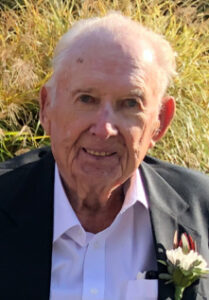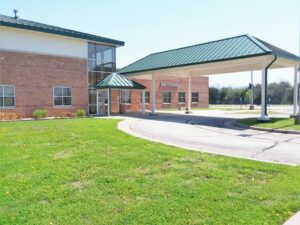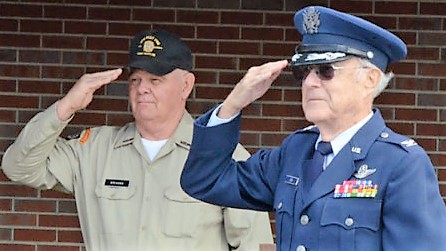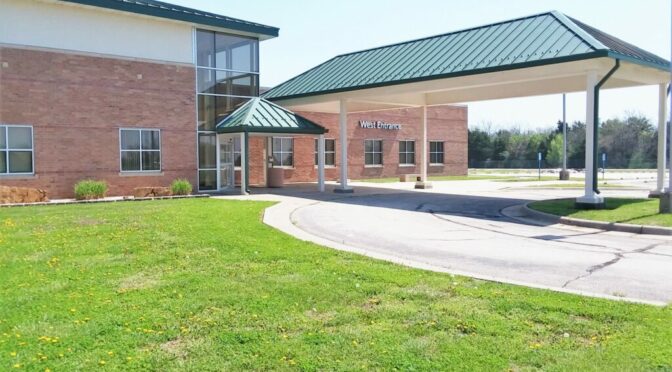Click below:
BoCo Democrats Meet June 14
The Bourbon County Democrats will meet on Flag Day, Sunday, June 14, at 1:00 pm in shelter house #1 at Gunn Park.
Pollinators Are Critical In Crop Production
Op-Ed
Producers Use Conservation to Protect Pollinator Habitat, Boost Crop Production
By Troy Munsch, USDA NRCS State Conservationist, and David Schemm, USDA FSA State Executive Director, in Kansas
The next time snacking on almonds, add blueberries to a smoothie or eat pumpkin pie. Farmers, ranchers and private forestland owners work hard to create and maintain habitats for pollinators.
Pollinators, such as honeybees, bumblebees, butterflies, birds, bats, flies and many others, play a critical role in crop production. Without pollinators, some crops would suffer.
During the week of June 22-28, the U.S. Department of Agriculture (USDA) will celebrate these iconic and crucial pollinators during National Pollinator Week. This year’s theme is “Pollinators, Plants, People and Planet.”
Thirteen years ago, the U.S. Senate unanimously designated the third week in June as National Pollinator Week to increase awareness on the importance of pollinators and the challenges many of them face, including serious population declines and habitat losses, often due to land use changes and excessive or improper pesticide use. Nearly 200 species of pollinators are considered threatened or extinct.
Pollination occurs when pollen grains are moved between two flowers of the same species, or within a single flower by wind or insects and animals. Successful pollination results in healthy fruit and fertile seeds, allowing the plants to reproduce.
The extensive and critical world of crop pollinators is a $20 billion a year industry. About 75 percent of crop plants are pollinated by billions of animals and insects every year.
Many Federal, State and local government agencies, non-government organizations and universities have launched extensive efforts to protect pollinators, especially honeybees and the Monarch butterfly. The U.S. Department of Agriculture (USDA) works closely with farmers, forest landowners and other private landowners to increase pollinator habitat in targeted areas nationwide.
The Environmental Quality Incentives Program (EQIP), through USDA’s Natural Resources Conservation Service (NRCS), offers financial incentives to agricultural producers and private forest landowners who enhance pollinator habitat by voluntarily implementing conservation practices such as cover crops, wildflower and native plantings in buffers and areas not in production.
Conservation Reserve Program (CRP) also can be used to enhance habitat to protect pollinators. Administered by USDA Farm Service Agency (FSA), CRP is a land conservation program which enrolled landowners remove environmentally sensitive land from agricultural production and plant species that will improve environmental health and quality.
As owners and stewards of the land, producers manage their natural resources to work to achieve their production goals. They protect the rich and diverse ecology on or near their operations.
When protecting pollinators, we protect the ability to grow food. Thank you to our farmers, ranchers and private forest landowners for who offer a safe haven for pollinators and grow the products for our nation.
Whether you are a large commodity producer, a small and diverse organic producer or even a suburban homeowner, you can have an important role in saving pollinators in Kansas.
You can help protect pollinators by doing the following:
- Plant appropriate vegetation. Use conservation practices and create habitat that sustains and enhance pollinators on the farm, forest or the yard.
- Use pesticides, herbicides and insecticides carefully on and off the farm, ranch and private forests. Keep your operation pollinator friendly.
- Protect flowering plants and potential pollinator nesting sites such as areas of undisturbed ground and native vegetation.
Do your part to help protect pollinators. By taking action to diversify and enhance your operation or property, it ensures that many fruits and vegetables are available and plentiful for future generations for many years to come.
For more information about pollinators and what you can do in Kansas, please contact your local USDA service center.
#
USDA is an equal opportunity provider, employer, and lender.
Farm Service Nominations
Farm Service Agency County Committee Nominations Open June 15
#LeadYourFSA and be the Voice of Farmers in Your Community
WASHINGTON, June 10, 2020 – USDA’s Farm Service Agency (FSA) will begin accepting nominations for county committee members on Monday, June 15, 2020. Elections will occur in certain Local Administrative Areas (LAA) for these members who make important decisions about how federal farm programs are administered locally. All nomination forms for the 2020 election must be postmarked or received in the local FSA office by Aug. 1, 2020.
“I encourage America’s farmers, ranchers and forest stewards to nominate candidates to lead, serve and represent their community on their county committee,” FSA Administrator Richard Fordyce said. “There’s an increasing need for diverse representation, including underserved producers, which includes beginning, women and minority farmers and ranchers.”
Agricultural producers who participate or cooperate in an FSA program, and reside in the LAA that is up for election this year, may be nominated for candidacy for the county committee. Individuals may nominate themselves or others, and organizations, including those representing beginning, women and minority producers, also may nominate candidates.
Committee members are vital to how FSA carries out disaster programs, as well as conservation, commodity and price support programs, county office employment and other agricultural issues.
Nationwide, more than 7,700 dedicated members of the agricultural community serve on FSA county committees. The committees are made of three to 11 members and typically meet once a month. Members serve three-year terms. Producers serving on FSA county committees play a critical role in the day-to-day operations of the agency.
Producers should contact their local FSA office today to find out how to get involved in their county’s election. Check with your local USDA service center to see if your LAA is up for election this year. To be considered, a producer must sign an FSA-669A nomination form. The form and other information about FSA county committee elections are available at fsa.usda.gov/elections.
Election ballots will be mailed to eligible voters beginning Nov. 2, 2020. Read more to learn about important election dates.
Ag Risk Coverage 2020
June 30 Last Day to Complete Enrollment for 2020 Agriculture Risk Coverage,
Price Loss Coverage Programs
Call Today About 2020 Crop Year Eligibility
WASHINGTON, D.C., June 11, 2020 – Agricultural producers who have not yet enrolled in the Agriculture Risk Coverage (ARC) or Price Loss Coverage (PLC) programs for 2020 must do so by June 30. Although program elections for the 2020 crop year remain the same as elections made for 2019, all producers need to contact their local USDA Farm Service Agency (FSA) office to sign a 2020 enrollment contract.
“The Agriculture Risk Coverage and Price Loss Coverage programs are critical safety-net programs for farmers, helping producers weather market distortions resulting from natural disasters, trade disruptions and, this year, a pandemic,” said FSA Administrator Richard Fordyce. “Contact your FSA county office today to complete enrollment before June 30. This can be done in concert with filing your acreage report and applying for other FSA programs.”
To date, more than 1.4 million ARC and PLC contracts have been signed for the 2020 crop year. This represents 89 percent of expected enrollment. FSA will send reminder postcards to producers who, according to agency records, have not yet submitted signed contracts for ARC or PLC for the 2020 crop year.
Producers who do not complete enrollment by close of business local time on Tuesday, June 30 will not be enrolled in ARC or PLC for the 2020 crop year and will be ineligible to receive a payment should one trigger for an eligible crop.
ARC and PLC contracts can be mailed or emailed to producers for signature depending on producer preference. Signed contracts can be mailed or emailed back to FSA or, arrangements can be made in advance with FSA to drop off signed contracts at the FSA county office – call ahead for local drop off and other options available for submitting signed contracts electronically.
Producers are eligible to enroll on farms with base acres for the following commodities: barley, canola, large and small chickpeas, corn, crambe, flaxseed, grain sorghum, lentils, mustard seed, oats, peanuts, dry peas, rapeseed, long grain rice, medium- and short-grain rice, safflower seed, seed cotton, sesame, soybeans, sunflower seed and wheat.
More Information
For more information on ARC and PLC including web-based decision tools, visit farmers.gov/arc-plc.
USDA Service Centers, including FSA county offices, are open for business by phone only, and field work will continue with appropriate social distancing. While program delivery staff will continue to come into the office, they will be working with producers by phone and using online tools whenever possible. All Service Center visitors wishing to conduct business with the FSA, Natural Resources Conservation Service or any other Service Center agency are required to call their Service Center to schedule a phone appointment. More information can be found at farmers.gov/coronavirus.
Visit offices.usda.gov to find location and contact information for the nearest FSA county office.
#
USDA is an equal opportunity provider, employer and lender.
Obituary of Charles Lee Clark

Charles Lee Clark, age 83, a resident of Ft. Scott, Kansas, passed away Tuesday, June 9, 2020, at his home in Ft. Scott.
He was born June 22, 1936, in Ft. Scott, the son of Guy Clark and Minnie May Majors Clark.
Charles graduated from the Hume High School. He married Nina L. Orear on May 17, 1955, at the family farm near Foster, Missouri. Charles served with the United States Air Force from 1955 to 1958 where he was stationed in Germany. Following his military service, Charles was employed by the Johnson County Water Department. He later owned and operated his own dairy east of Hammond, Kansas, for many years. After retiring from the dairy business in the mid-1980’s, Charles began working for the Ft. Scott Water Department and later for the Bourbon County Landfill.
Charles enjoyed spending time outdoors and looking after his horse. He was a member of the West Liberty United Methodist Church.
Survivors include his son, Anthony Clark and wife, Linda, of Lebanon, Missouri and his daughter, Lozana Zimmerman, of Pittsburg, Kansas.
His wife, Nina, preceded him in death on November 8, 2010. He was also preceded in death by a son-in-law, John Zimmerman and three brothers, Joe, Kenneth and Gene Clark.
There was cremation.
Private burial will take place at a later date in the U. S. National Cemetery in Ft. Scott, Kansas.
Memorials are suggested to the West Liberty United Methodist Church and may be left in care of the Cheney Witt Chapel, 201 S. Main, P.O. Box 347, Ft. Scott, KS 66701. Words of remembrance may be submitted to the online guestbook at cheneywitt.com.
FSCC Trustees Agenda for June 15
The Board of Trustees of Fort Scott Community College will meet in regular session on Monday,
June 15, 2020. The meeting will be held in the Heritage Room at Fort Scott Community
College.
5:00 p.m. Dinner in the Heritage Room at 5:00 p.m. followed by regular board meeting at
5:30 p.m.
THE AGENDA
5:30 ROLL CALL, 3
PLEDGE OF ALLEGIANCE
CALL TO ORDER, 4
A. Comments from the Chair, 4
CONSENT AGENDA, 5
A. Approval of Agenda, 5
B. Approval of Minutes of previous Regular Board Meeting conducted on May 18, 2020,
6
C. Approval of Treasurer’s Report, Bills, and Claims, 7
D. Approval of Personnel Actions, 5
ACTION/DISCUSSION ITEMS
A. Consideration of 2020-21 Meeting Dates, 38
B. Consideration of Revised 2020-21 Calendar, 39
C. Consideration of Kansas State Department of Education Migrant Education Project State
Level Activities Application, 41
D. Consideration of Proposed Continuation Agreement Between Iowa Dept. of Education
(IA DOE) And Fort Scott Community College, 52
E. Consideration of KASB Worker’s Compensation Member Participation Premium
Agreement, 53
F. Approval of Consortium Memberships and Dues, 57
G. Consideration for Disposal of Property, 59
H. Consideration of Tech Grant Purchase, 60
I. Approval of Panopto Video Platform Renewal, 67
J. Approval of CAMP Laptop Purchase, 70
ITEMS FOR REVIEW, 94
REPORTS, 95
A. Administrative Updates, 95
EXECUTIVE SESSION, 105
1
ADJOURNMENT, 106
UPCOMING CALENDAR DATES:
• June 15, 2020: Board Meeting
• August 7, 2020: In-service
• August 10, 2020: Fall semester begins
• September 2, 2020: Labor Day – Campus Closed
• November 19-24, 2020: Finals
• November 21, 2020: Graduation
• November 25 – 27, 2020: Thanksgiving Break – Campus Closed
• December 16, 2020 – January 4, 2021: Winter Break – Campus Closed
Sincerely,
John Bartelsmeyer, Chair
Alysia Johnston, President
CONSENT AGENDA
A. APPROVAL OF AGENDA
B. APPROVAL OF MINUTES OF PREVIOUS MEETINGS
1) Attached are the minutes of the Regular Board Meeting conducted on May 18,
2020.
C. APPROVAL OF TREASURER’S REPORT, BILLS and CLAIMS
Attached are the Treasurer’s Report and the Bills and Claims Report.
D. APPROVAL OF PERSONNEL ACTIONS
1) Additions
a) Chris Riley, Assistant Football Coach, effective June 1, 2020
b) Jesse Herd, Assistant Football Coach, effective June 15, 2020
c) Elizabeth Cazares, MEP Advocate, effective July 1, 2020
d) Paulin Conde, MEP Advocate, effective July 1, 2020
e) Mayte Fuentes, MEP Advocate, effective July 1, 2020
f) Melanie Stuart Campbell, MEP Advocate and Instructional Specialist, effective July 1, 2020
g) Janet Reynolds, National PASS Coordinator and MEP Advocate Supervisor,, effective July 1, 2020
h) Yazmin Batch, Assistant Women’s Basketball Coach, effective July 1, 2020
2) Separations
a) Tabitha Stults, Endowment Assistant, effective May 20, 2020
b) Michael Reynolds, Assistant Football Coach, effective May 31, 2020
c) Makaihlah Gibbs, Spirit Squad Coach, effective May 31, 2020
To view the full package:
FSCC Trustees Minutes of May 18
FORT SCOTT COMMUNITY COLLEGE Minutes of the Board of Trustees Training, May 18, 2020
PRESENT: John Bartelsmeyer, Jim Fewins (via Zoom), Dave Elliott (via Zoom), Kirk Hart (via Zoom), Bill
Meyer (via Zoom), Robert Nelson (via Zoom)
ALSO PRESENT: Alysia Johnston, President, Juley McDaniel, Board Clerk, faculty, staff, and community
members.
Chairman Bartelsmeyer called the meeting to order at 5:30 pm. The meeting was opened with the Pledge of
Allegiance.
COMMENTS FROM THE CHAIR: Chairman Bartelsmeyer said he was glad the Board could continue to meet
through Zoom, and is looking forward to having a regular in-person meeting in June if possible.
CONSENT AGENDA: A motion was made by Meyer, seconded by Fewins, and carried by unanimous vote to
approve the consent agenda and addendum provided.
ACTION/DISCUSSION ITEMS:
A. A motion was made by Meyer, seconded by Elliott, and carried by unanimous vote to approve the core
values, mission, vision, and updated strategic plan.
B. A motion was made by Elliot, seconded by Hart, and carried by unanimous vote to approve the Collection
Exhibit Loan Agreement Policy for the Gordon Parks Museum.
C. A motion as made by Hart, seconded by Nelson, and carried by unanimous vote to remove the item of
Greyhound Dorm replacement windows from the agenda.
REPORTS:
A. ADMINISTRATIVE UPDATES: The Board reviewed and heard reports from the Student Services,
Athletics, Academic Affairs, Finance and Operations, and the President.
ADJOURNMENT: There being no further business to come before the Trustees, a motion to adjourn was made at
6:24 p.m. by Elliott, seconded by Hart, and carried by unanimous vote.
Town Wide Garage Sale This Weekend
|
|
|
|
|
|
|
|
|
|
|
|
The Bourbon County Sheriff’s Office Daily Reports June 11
Obituary of Ellis Lee Beth

Ellis Lee Beth, age 95, resident of rural Ft. Scott, KS, died June 10, 2020, at his home. He was born February 21, 1925, in Ft. Scott, the son of Clifton and Edna White Beth. He graduated from Fulton Kansas High School in 1943. He lived his entire life as a farmer in the West Liberty community. He accepted Jesus Christ as his savior at an early age. He loved fishing, golfing, bowling, square dancing, sports, and spending time with family. He was always willing to offer a helping hand. He married his high school sweetheart, Catherine Costin, on November 12, 1944. They celebrated their 75th Anniversary in 2019.
Survivors include his wife Catherine of the home; two daughters, Marilyn Sipe and husband John, and Marsha Bell and husband Doug; a sister, Carol Jean Smith; a brother, Albert Beth and wife Jan; a daughter-in-law, Sandra Beth; grandchildren, Shana and Mike Emerson, Clifton and Whitney Beth, Beth Ann and Casey Alexander, Catherine Bell and Nick Sterner, and Elizabeth and Ray Berrens; and great grandchildren, Cali, Nick and Austin Emerson, Ella and Carter Beth, Isaac and Eli Alexander, Bryn and Claire Sterner, and Kiya Berrens. He was preceded in death by his parents; a daughter, Cathy Lee, a son, Darrel Beth; and a brother Merle Dean Beth.
There was cremation. Private family burial with take place at a later date in the West Liberty Cemetery. Memorials are suggested to the American Diabetes Association and may be left in care of the Cheney Witt Chapel, PO Box 347, 201 S. Main St., Ft. Scott, KS 66701. Words of remembrance may be submitted to the online guestbook at cheneywitt.com.
Health Care Mall Being Formed by Bourbon County

Bourbon County Economic Director Jody Hoener is working on securing leases in the former Mercy Hospital building on Fort Scott’s south end, in hopes of providing the county with a medical mall.
A medical mall is a facility offering comprehensive ambulatory medical services such as primary and secondary care, diagnostic procedures, outpatient surgery, and rehabilitation, except the overnight beds, according to merriam-webster.com.
“Bourbon County demographics show proportionately more elderly, more children living in poverty, lower incomes, and more chronic health conditions,” Hoener said. ” In addition, our community recently felt the impact of fewer health services (with the closing of Mercy Hospital in 2018). Rural health systems can overcome these challenges by creating linkages and efficiencies.”
“Access to robust and diverse health services is much more than a quality of life issue,” she said. “A vigorous and thriving health care system is essential not only for public health and welfare, but to enhance economic opportunity as well.”
Health organizations that currently have a part in Bourbon County health care have shown interest.
“We are currently working on leases with Community Health Centers of Southeast Kansas and Ascension Via Christi,” she said. “These leases will be ten-year long-term contracts,” she said. “Fort Scott Community College Nursing program will also be leasing space through an inter-local agreement.”
Other entities have “paused” conversations.
“Although we have been in talks with additional healthcare providers to occupy space, the COVID-19 pandemic has paused much of these conversations.,” Hoener said. “Recruitment activities will be a high priority with a goal of one additional anchor tenant in the next 3-5 years.”
The combined operation of many entities under one roof provides financial benefits to each involved, Hoener believes.
“The healthcare mall addresses many challenges local providers face in an innovative approach, creating synergy within the four walls, that will help each organization’s bottom line,” she said. ” In general, there are fewer healthcare providers in rural areas, and they operate on very thin profit margins. When compared to urban communities, our local health providers face unique challenges.”
Bourbon County’s vision for the community:
“Our vision is a healthy, safe, and thriving Bourbon County.,” she said. “A strong health care system is a critical piece of any community’s vitality and sustainability.”
The healthcare industry impacts the local economy.
“The healthcare industry is rapidly changing and has the potential to greatly impact access to these services in the future, ” Hoener said.
“Through the healthcare mall, we are becoming proactive in maintaining high-quality local health care services. In addition to health outcomes, healthcare services have shown to have an impact on:
- Attracting and maintaining business and industry growth
- Attracting and retaining retirees
- Creating higher-paying jobs in a growing sector
- Contributing to public finances, supporting essential public services”
” Americans are spending more dollars on healthcare,” Hoener said. “In 1970 healthcare costs accounted for 7.0 percent of the GDP. In 2017, Americans spent $3.5 trillion on healthcare, or 18.0 percent of the GDP. The projected GDP is 19.4 percent by 2027 (Kansas Health Association, 2019). Capturing a share of this economic growth will only help our community.”
“When residents spend health care dollars elsewhere, rather than purchasing the service locally, it can have a negative economic impact and result in loss of dollars within our local community,” she said. “Out of town trips to obtain healthcare services naturally offer opportunities to spend dollars outside of town that may have been spent locally.”
“Nationwide, employment in healthcare services increased 92 percent from 1990 to 2015. For Bourbon County, in 2017, health services ranked number 3 in terms of employment,” she said. ” Also, in 2017, the health care sector’s impact on retail sales was $19,308,000, county sales tax impact of $270,000, and a total impact of $65,378,000. (Kansas Health Association, 2017).”
“Industry and business leaders look for good health and education services when making location decisions,” Hoener said. “They also want to ensure the local labor force will meet their needs.”
” Attracting and maintaining retirees is also important as this is a special group of residents whose spending can provide a significant source of income for the local economy.”





